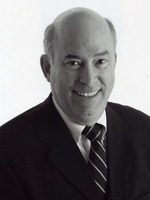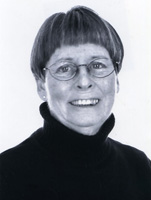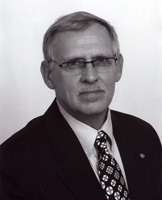 |
||
 |
 |
 |
Tom Berschback Grosse Pointe South |
Jan Gottlin Riverview |
Ken Hofmeyer Comstock Park |
(click on Inductee's name to read 'description')
 |
||
 |
 |
 |
Tom Berschback Grosse Pointe South |
Jan Gottlin Riverview |
Ken Hofmeyer Comstock Park |
(click on Inductee's name to read 'description')

 From 1985-1995, the all-important area seeding meeting that is semiannually held on the Sunday afternoon following the Saturday regional tournaments for coaches of Southeast Michigan tennis teams, was hosted in the living room of Ed Waits. Given the strength of competition, it was, to understate, a high-powered gathering. The room was always filled with many of the most successful coaches in the state, leaders whose teams would be, in one or two weeks (depending on the season), in close contention for state honors. Even coaches of Ann Arbors Pioneer and Huron attended that gathering although they were supposed to be at another location in Monroe. That’s because Tom Pullen and Jim Burdelski knew that this was where the action would be.
From 1985-1995, the all-important area seeding meeting that is semiannually held on the Sunday afternoon following the Saturday regional tournaments for coaches of Southeast Michigan tennis teams, was hosted in the living room of Ed Waits. Given the strength of competition, it was, to understate, a high-powered gathering. The room was always filled with many of the most successful coaches in the state, leaders whose teams would be, in one or two weeks (depending on the season), in close contention for state honors. Even coaches of Ann Arbors Pioneer and Huron attended that gathering although they were supposed to be at another location in Monroe. That’s because Tom Pullen and Jim Burdelski knew that this was where the action would be.
In that room each and every spring was Tom Berschback representing Grosse Pointe South. After all, his teams would qualify for state competition every season. Furthermore, they would go on to achieve his annual goal: to finish in the Top Ten of the state. “Regardless of the results that came out of East Lansing in terms of seeds,” says Ed, “Tom never complained, even if he felt that his kids had been shortchanged. He always said that kids win matches on the court, not at the seeding meeting.”
This was a typical response. When coaches are asked to describe Tom, they come up with words such as gentleman and gracious. He is soft-spoken, low-key, and self-effacing. “His blend of quiet gentlemanly assertiveness has earned the respect and admiration of his colleagues,” said a coach back in 1995 when Tom was chosen MHSTeCA Boys Coach of the Year.
“He is a man of impeccable integrity,” says Chuck Wright from neighboring University Liggett School. “If there is a problem, he will handle it directly and use it as a teaching tool for the future. He is unassuming, humble, and a wonderful role model.”
And to be sure, his kids were most effective on the court, with or without the advantage of seeds. Having entered Ed’s meeting or a similar one in another location as regional champion 20 out of 22 years, he emerged to often eclipse his Top Ten goal. Over two decades (he took over the program in 1988) his Blue Devils placed second in the state once, 3rd twice, 4th seven times, 5th three times, and 6-10 place seven times. From 1988 –2008, his league record has been an amazing 106-3-2; Overall it is 175-39-13, an 82% won-loss record.
And this doesn’t include Tom’s tenure at neighboring Grosse Pointe North where from 1980-1987, his team was 71-12 overall, and 54-1 in the league. During these eight years, his kids won the regional three times and finished second five times (to South). In that Tom was teaching at South, he was sometimes being beaten by kids who were students in his math classes during the school day. But this closeness of community is nothing new for him. “I grew up four doors from where I live now,” he say, “moving to Grosse Pointe Park when I was 12.”
Tom played 1S at Detroit Austin, student taught at the old Grosse Pointe High School in 1967, and never left. He retired in 2006 after 39 years of teaching -- and the last 10 as math department co-chair -- but still coaches the boys. This past fall, his kids were regional champs at every flight and 7th at the state tournament. The season was his 29th year of coaching tennis but he coached basketball for a time as well. Furthermore, he has managed the regional every year since taking over the South job from Don Zysk. He has coached his share of players who went on to play Division 1 college tennis.
“Every year we tell him that he should be Regional Coach of the Year,” says board member Larry Harte of Warren Mott. “He always answers: ‘ No, no, spread it around.’” “He deflects any praise or glory to his players,” adds Chuck.
This is a self-deprecating individual who has coached at a perennial powerhouse for 21 years amidst a tradition of success. After all, two Grosse Pointe South coaches are already in the Hall of Fame: Stephanie Prychitko in 1987 and Mark Sobieralski in 2004. As it turns out, only two other schools can boast of three tennis in this august group: Monroe and Grosse Pointe University Liggett. Thanks to Coach Berschback, there are now three.
| Back to Top |

It is noteworthy to observe that Jan Gottlin was urged to apply for the Hall of Fame by both a crosstown rival and a former four-year player.
“When I began my high school tennis coaching career, Jan was the first to not only provide a hearty welcome, but also encouraged me in many areas,” says J.R. Muniz from neighboring Riverview Gabriel Richard. “She has been a valued sounding board, offering advice on parent/player relationships, team practices, weekend tournaments, the MHSTeCA board, the annual tennis conference, and much more. Her advice is always on the mark. The entire Riverview tennis community has a sense of camaraderie. Jan has that knack of making those who know her feel that we belong.”
The four year player is her daughter Kim who went on play for Henry Ford Community College and Hillsdale College. “She is one of a kind,” says Kim who played 1D and two years at 1S for the Pirates. “Through the years she has given of herself and sacrificed family dinners, vacations, and time spent at the cottage so she could coach and encourage her players to challenge themselves. Growing up with her coaching meant that every season I became part of the team. I would watch the players stop by the house and talk or just say hello. Through the years, I never heard her complain about an upcoming season, practice, or tournament.”
We’re talking here about a skilled tennis player who developed her game in pre-Title IX days. When Jan was in 4th grade, her elementary school principal, an avid tennis player, selected three students from the gym classes to spend lunch hours learning the game. But even though Dr. Wells went even further by entering Jan in summer tournaments, she stopped playing the court version of the game to concentrate on paddle play. Proficient enough to be a member of the U.S. Table Tennis Team, she became too focused to play both sports, particularly when it came time to prepare for the World Tournament. Nevertheless, she resumed the racquet sport after high school when she played for Western Michigan University.
The WMU connection remains to this day. Jan returns to her alma mater with her kids in tow by enrolling the entire team in the university’s tennis camp. “My tennis team as attended this camp for the last four years,” she says, “and I have found it particularly helpful in team building. The team stays overnight at a motel near the university, thus providing time for the newer players to become better acquainted with myself and the older players. The entire team spends all day on the court learning new tennis skills and techniques.”
Jan promotes another team-building tradition: the team song. “Each new player must sing this song in front of the rest of the team,” she says. “This is usually done on the bus ride home from the tennis camp or on the bus ride to our first match.”
“Jan has single-handedly developed both the boys and girls tennis programs at Riverview Community High School,” agree both Maxine Yetter and Steve Hawley, principal and assistant principal respectively. It started in 1983 when an on-court friend told her about a recent opening. When she took over, the team numbered only six players but over the course of two decades-plus, the numbers have grown and the coach has earned the respect, admiration, and outright love of players, parents, and coaching colleagues. Jan was first voted MHSTeCA girls coach of the year in 1993 followed by recognition as Boys COY in 2001 and another award for the girls in 2005.
Prior to those awards, board members described Jan as “always very professional.” But more telling, perhaps, is the fact the she lives the credo of Rudyard Kipling’s famous phrase “If you meet triumph and disaster/ and treat those two imposters just the same.” Over the years, coaches have repeatedly declared that she is “the same gracious person through the good seasons and the bad seasons.”
Indeed her teams have done their share of both winning and losing. Riverview kids aren’t often found at the state tournament at the end of the season, but when they qualify, folks who are her competitors leap to congratulate her. “It was neat the first time we qualified,” said Jan at the time. “Here was little old Riverview going to the state tournament.” It was an occasion for celebration because year after year her kids compete against perennial power Grosse Ile, as well as Trenton.. Even still, in 2003 and 2004, the Pirates went back to back for the first time in history.
Part of the problem -- both a blessing and a curse --is her generosity. Jan promotes tennis throughout the Downriver Community, not just in Riverview. Each summer she directs a high school tennis camp with Al Kaye of Allen Park Cabrini, Barb Myler (Hall of Fame Class of 2008) of Royal Oak Shrine, and Jerry Escheck of Carleton Airport. In addition, she has taught at the Downriver Racquet Club for a considerable length of time. This is the facility where she met Harvey Payne, a retiree from BASF who became her assistant coach 19 years ago.
Harvey was named MHSTeCA’s assistant coach of the year in 2008. This generous man volunteers for a coach who is equally generous. Jan has served on the MHSTeCA board of directors and recently agreed to succeed (pun intended) Karen Langs of Petoskey as the manager of our All Academic selections. In addition, she runs the Huron League and MHSAA regional tournaments.
“The membership of the Michigan High School Tennis Coaches Hall of Fame will surely be bolstered by adding a coach with such an unending dedication to the sport,” says J.R.
| Back to Top |

“I began my tennis coaching career rather humbly to say the least,” says Ken Hofmeyer. “I never expected to be a tennis coach, having been cut from the Comstock Park High School tennis team in my freshman year. I gave up tennis and took up wrestling, and had some success. I didn’t play tennis again until college [Grand Valley] when I took tennis as a physical education class. I found I enjoyed it and continued to play.”
“I began my teaching career in 1970 at my old high school,” Ken continues, “and in 1975 a curious thing happened. I was in the teachers’ lounge talking to the coach who had cut me my freshman year and who had quit coaching several years earlier when the athletic director came into the room. He (the A.D.) said that the young man who had coached the previous year just quit and he needed a tennis coach immediately. No one responded. He said, ‘Does anyone at least like tennis?’ I said I did and he yelled, ‘It’s yours!’”
Still hesitant, Ken negotiated. “I took the job but with one absolute stipulation,” he says. “It was to be a one-year commitment. He promised to find ‘a real coach’ the following season. “It was a goofy thing you fall into,” he reflected years later.
“The problem was that I enjoyed it,” he continues. “The final blow came when my number one singles player gave me an ultimatum. When I told the kids they would get a new coach the following season, Dan Myers, a junior and a very promising player, responded that he [already] had a coach. If I didn’t return, neither would he. I was honestly afraid that he meant it. I came back, Dan won the regional meet and qualified for the state finals, and I was hooked.”
Indeed, from then on Ken immersed himself in the game the way successful coaches do. “I knew I needed to do more for the kids so I joined the association, started lessons, and took every coaching clinic I could,” he says. “I started a tennis camp in the summer. It started small with just 12 kids (mostly 8th grade girls) but grew each year. We now average 80 players a summer, ranging from 5 years old to high school seniors. We added an adult session and drew 15 participants that year, mostly parents of my players. The camp has made a huge difference.”
Indeed during the past 34 years (30 of them as girls coach), Ken’s boys and girls, playing for his alma mater, have won over 400 matches, 31 tournament championships, and three regional titles. His kids have qualified for state competition 6 times, best finishes being 7th in the state for boys in 2002 and 3rd in the state for girls in 1995.
Given both the lengthy tenure and the success, colleagues couldn’t help but take note. Ken has been chosen MHSTeCA’s Boys Regional Coach of the Year three times (1998, 2003, and 2005), and was voted State Coach of the Year twice: once in 1995 for the girls and again in 2003 for the boys. As the MHSAA Tennis Coach of the Year in 2003, he achieved NFHS Coach of the Year status, thus putting him in the final five for National Coach of the Year.
“Dan, that stubborn kid who played number one singles, is now 50 and my closest friend,” says Ken. “We play tournaments together in the summer and our families see each other regularly. Over the years, I have played in tournaments with former players from three decades. This is the most important part of coaching for me, the friends I’ve made from former players.”
But he has also established great and profitable relationships with two assistant coaches, Bill Schaefer and Pete Luczyk. Bill moved to Comstock Park in 1993 and started volunteering. He was so effective -- he started a league JV program and still helps out with the girls, among many other things-- that he was voted MHSTeCA Assistant Coach of the Year in 1997. Pete will be honored with the same award at this year’s (2009) banquet.
It is to be expected that those who are inducted into the Hall of Fame accept with small measures of pride at what they have accomplished. But in Ken’s case, there should be added relish. It is a story of classic proportions. The young man who got cut from his high school tennis team returns to his alma mater and over three decades later accepts induction into the Michigan High School Tennis Coaches Hall of Fame.
| Back to Top |